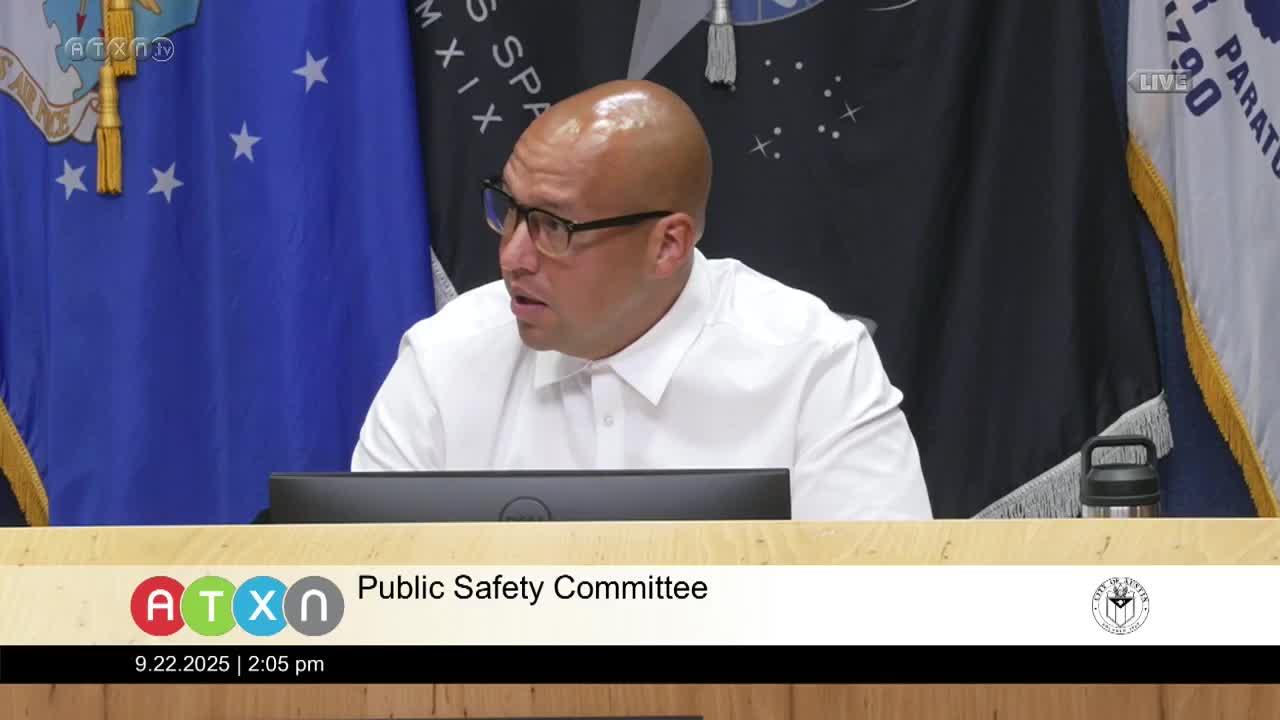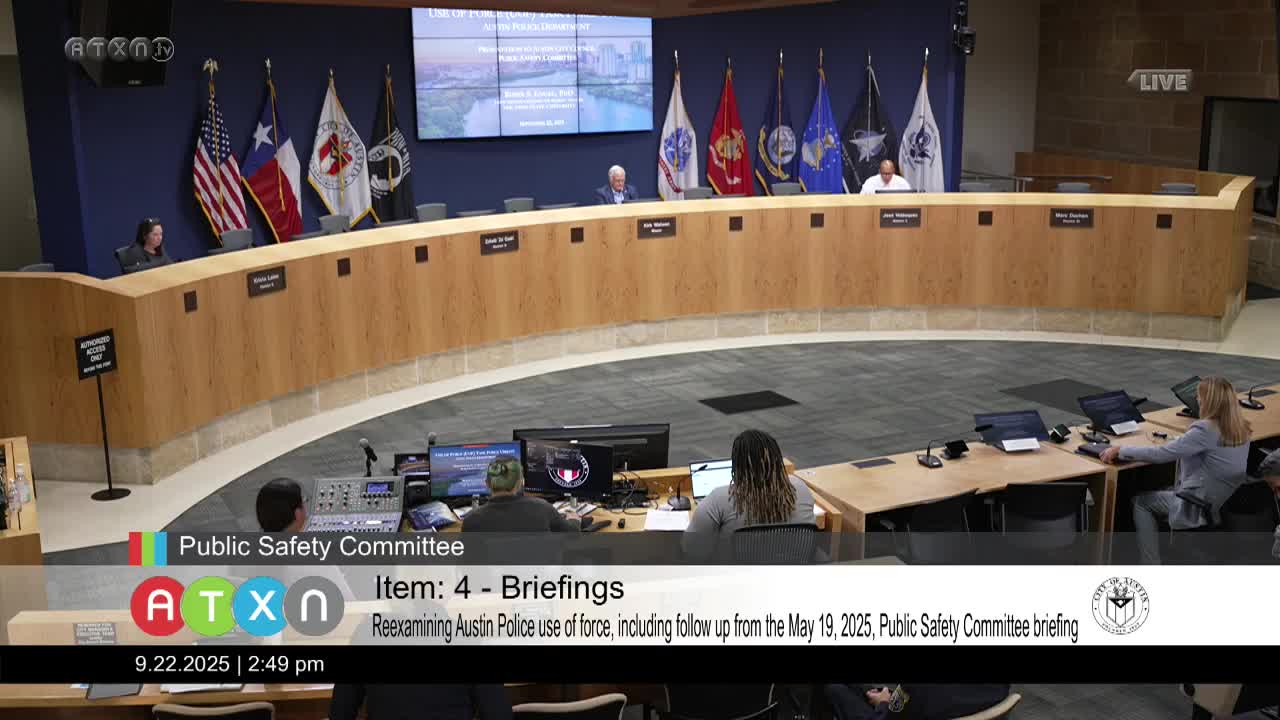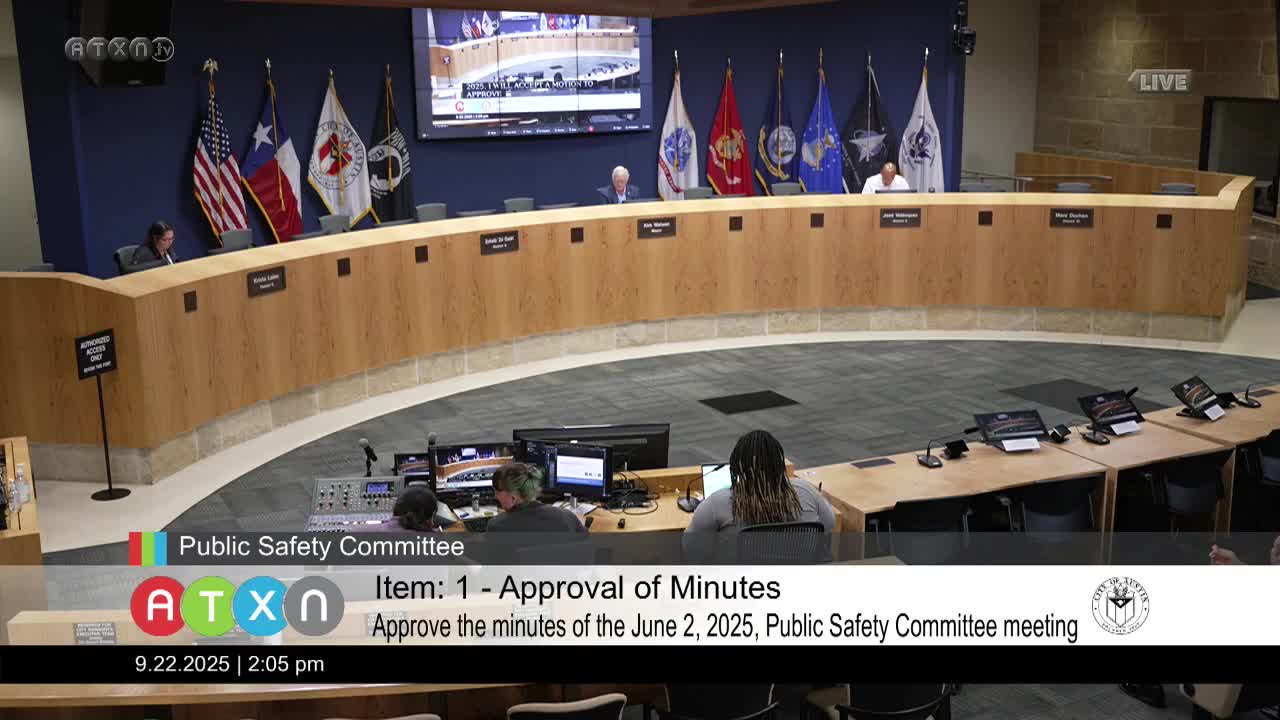Article not found
This article is no longer available. But don't worry—we've gathered other articles that discuss the same topic.

Public Safety Committee approves minutes and recommends municipal‑court judge reappointments to full council

Expert review and APD propose consolidated use‑of‑force policy, emphasize supervisor role and de‑escalation training

